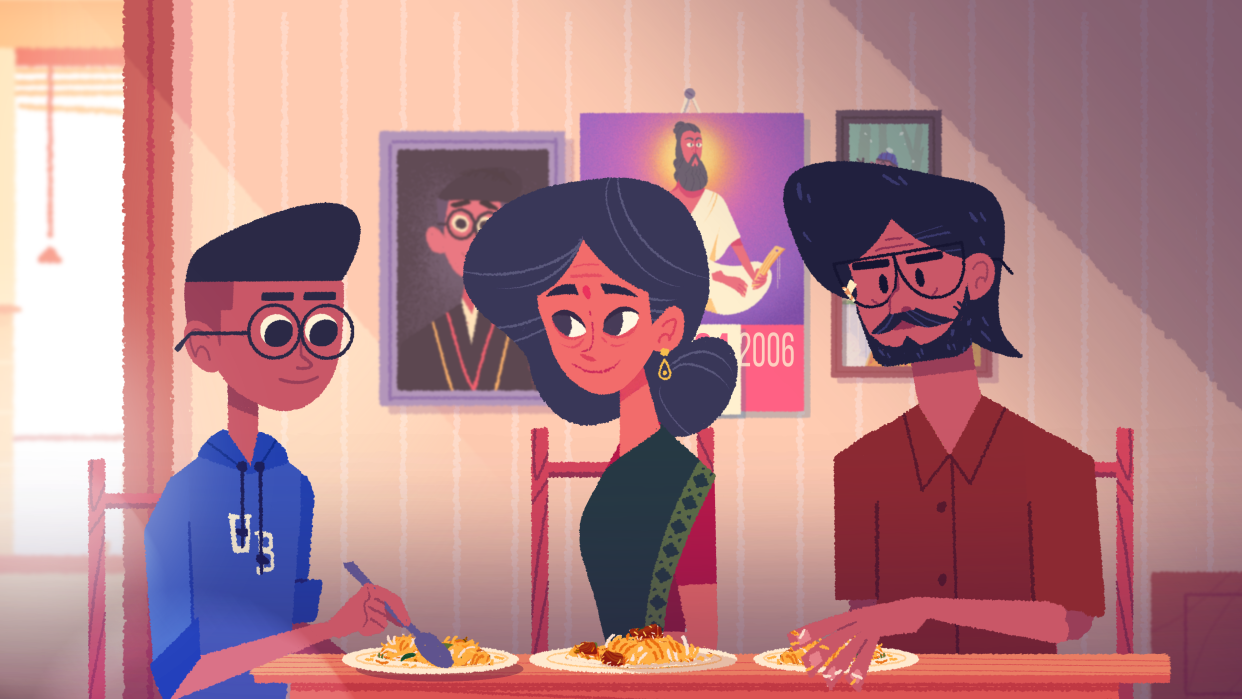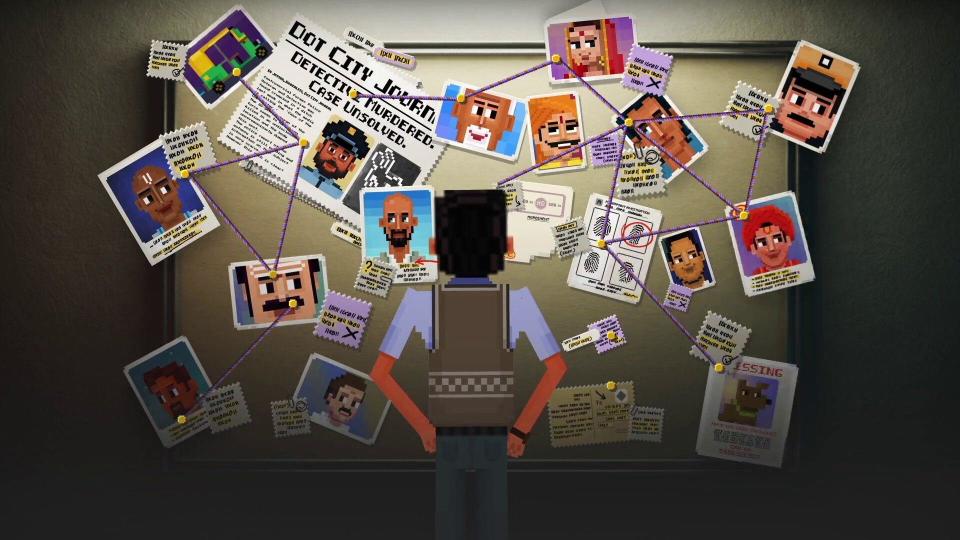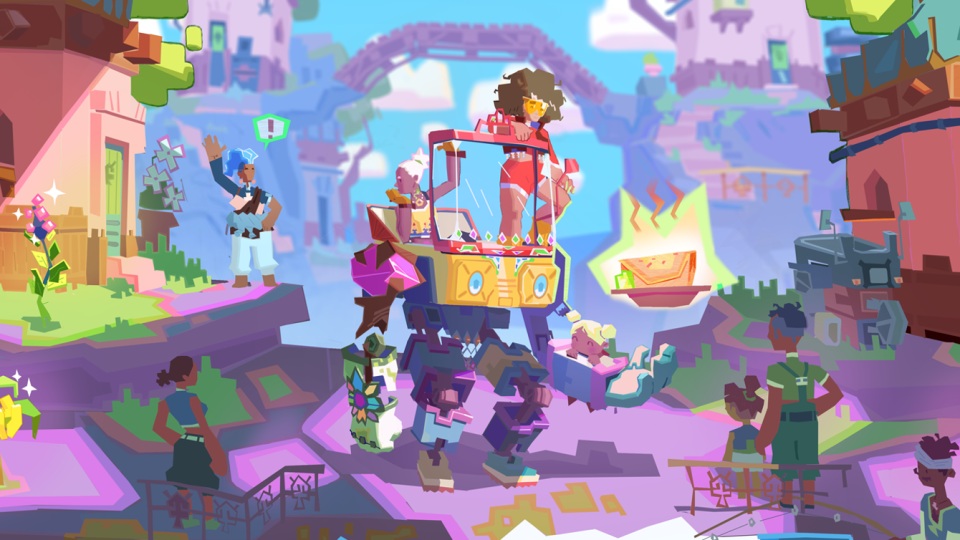Can indie games inspire a creative boom from Indian developers?

India might not be the first country that springs to mind when someone mentions video games, but it's one of the fastest-growing markets in the world.
Analysts believe there could be more than half a billion players there by the end of this year.
Most of them are playing on mobile phones and tablets, and fans will tell you the industry is mostly known for fantasy sports games that let you assemble imaginary teams based on real players.
Despite concerns over gambling and possible addiction, they're big business.
The country's three largest video game startups - Game 24X7, Dream11 and Mobile Premier League – all provide some kind of fantasy sport experience and are valued at over $1bn.
But there's hope that a crop of story-driven games making a splash worldwide could inspire a new wave of creativity and investment.
During the recent Summer Game Fest (SGF) - an annual showcase of new and upcoming titles held in Los Angeles and watched by millions - audiences saw previews of a number of story-rich titles from South Asian teams.

One of those was Detective Dotson by Masala Games, based in Gujarat, about a failed Bollywood actor turned detective.
Industry veteran Shalin Shodhan is behind the game and tells BBC Asian Network this focus on unique stories is “bucking the trend” in India's games industry.
He wants video games to become an “interactive cultural export” but says he's found creating new intellectual property difficult.
“There really isn’t anything in the marketplace to make stories about India," he says, despite the strength of some of the country's other cultural industries.
“If you think about how much intellectual property there is in film in India, it is really surprising to think nothing indigenous exists as an original entertainment property in games," he says.
"It’s almost like the Indian audience accepted that we’re just going to play games from outside.”
Another game shown during SGF was The Palace on the Hill – a "slice-of-life" farming sim set in rural India.
Mala Sen, from developer Niku Games, says games like this and Detective Dotson are what “India needed”.
“We know that there are a lot of people in India who want games where characters and setting are relatable to them," she says.

Games developed by South Asian teams based in western countries have been finding critical praise and commercial success in recent years.
Venba, a cooking sim that told the story of a migrant family reconnecting with their heritage through food, became the first game of its kind to take home a Bafta Game Award this year.
Canada-based Visai Games, which developed the title, was revealed during SGF as one of the first beneficiaries of a new fund set up by Among Us developer Innersloth to boost fellow indie developers.
That will go towards their new, unnamed project based on ancient Tamil legends.
Another title awarded funding by the scheme was Project Dosa, from developer Outerloop, that sees players pilot giant robots, cook Indian food and fight lawyers.
Its previous game, Thirsty Suitors, was also highly praised and nominated for a Bafta award this year.
Games such as these resonating with players worldwide helps perceptions from the wider industry, says Mumbai-based Indrani Ganguly, of Duronto Games.
“Finally, people are starting to see we’re not just a place for outsource work,” she says.
“We’re moving from India being a technical space to more of a creative hub.
“I’m not 100% seeing a shift but that’s more of a mindset thing.
"People who are able to make these kinds of games have always existed but now there is funding and resource opportunities available to be able to act on these creative visions.”
British-Indian game developer Charu Desodt believes the success of titles such as Venba has been thanks to their commitment to authenticity.
“They make me feel very proud," she says.
"We’re coming to a point where the industry is growing massively, both in terms of hours spent gaming but more importantly in the variety of the games.
"When you have authentic local stories told from the heart, that’s something everyone can relate to.”
Charu says funding for "unique and quirky stories has been an issue" but recent successes such as Venba and Thirsty Suitors have shown there is an appetite for south Asian stories told by south Asian developers.
Some of the industry's biggest companies are also paying attention.
Last year, Sony launched its India Hero Project with a goal to “unearth and empower India’s brightest game development talents” via mentorship and funding.
Its first cohort of games included slice-of-life games Fishbowl, museum exploration game Mukti and rhythm-action game Suri: the Seventh Note, inspired by mythical Indian stories from the Himalayas to Rajasthan.
Meanwhile french publishing giant Ubisoft’s Indie Series has supported Thousand Star Studios in creating Aikyam – a Bollywood-inspired fantasy roleplaying game set to be released this year.
Charu says video games and their interactivity allow people to “understand a concept on a very deep level."
“It’s not just about me appreciating my south Asian roots but its about other people really connecting with the authenticity of that experience,” says Charu.
“It takes time for an industry to evolve and mature," she says.
"We’re in the early days as an industry as a whole, even in the west.
"But people now have access to technology and India is also a nation that loves to tell stories.”

Listen to Ankur Desai's show on BBC Asian Network live from 15:00-18:00 Monday to Thursday - or listen back here.


